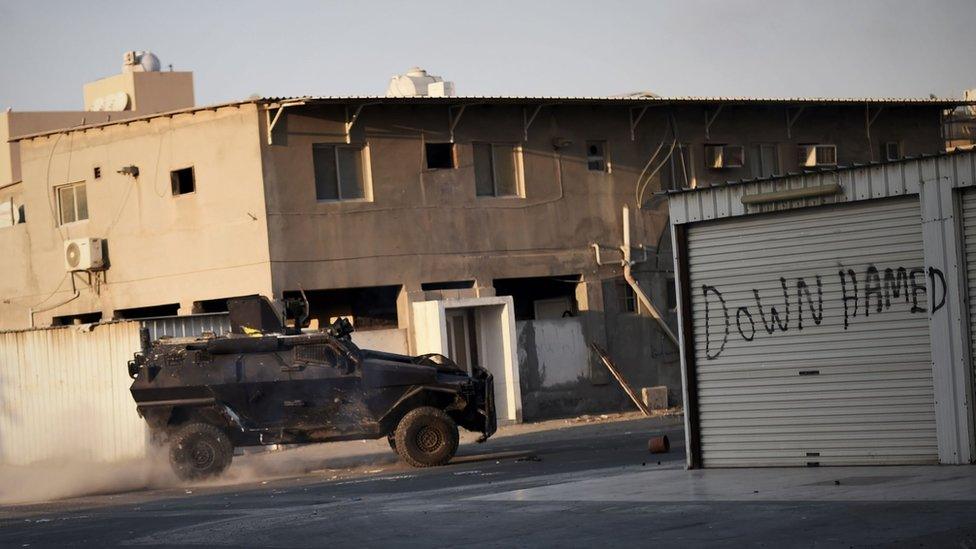Bahrain revokes citizenship of 138 people after mass trial
- Published

Iran has repeatedly denied that it has fomented unrest in Bahrain
A court in Bahrain has sentenced 139 people to prison, and revoked the citizenship of all but one, after convicting them of terrorism charges.
Sixty-nine defendants were given life sentences, while the others got terms of between three and seven years.
They were accused of setting up a cell linked to Iran's Revolutionary Guards.
The Sunni-ruled kingdom has accused Iran of fomenting unrest among its Shia majority community since it put down a pro-democracy uprising in 2011.
Iran supported the uprising, but it has repeatedly denied backing the local Shia militant groups that have carried out attacks on security forces.
Fifty-eight of the defendants were tried in absentia, a judicial source told AFP news agency.
It is unclear where any of those stripped of citizenship could be sent.
Last September, Bahrain's public prosecution announced it had charged 169 unnamed people with being members of a terrorist cell that it referred to as "Bahraini Hezbollah", after the Iran-backed militant Lebanese Shia movement.
The suspects were also accused of detonating bombs, attempted murder, damaging property and illegally possessing weapons and explosives.
The prosecution alleged that Bahraini Hezbollah was set up "at the behest of Iranian regime leaders who ordered the Iranian Revolutionary Guard elements to unify the Bahrain-based terrorist elements to carry out their plots and acts of terrorism against Bahrain".
The prosecution also alleged that the Revolutionary Guards had trained members of the cell in Lebanon, Iran and Iraq, and provided "technical, logistic and financial support".
and fined 96 of them $265,000 (£203,000) each.
One person was jailed but did not have citizenship revoked, while 30 others were acquitted.
A London-based campaign group, the Bahrain Institute for Rights and Democracy (BIRD), said Tuesday's sentencing was the largest single incident of citizenships being revoked through court decisions or executive orders since 2012.
Human rights groups have said the process lacks adequate legal safeguards and that most Bahrainis stripped of their citizenship are rendered effectively stateless.
"A mass trial cannot produce a just result and rendering people stateless in a mass trial is a clear violation of international law," said BIRD's director of advocacy, Sayed Ahmed Alwadaei, who was stripped of his citizenship by the interior ministry in 2015 for "defaming the image of the regime".
The Universal Declaration of Human Rights states that everyone has the right to a nationality and that no-one shall be arbitrarily deprived of his nationality, or of the right to enter his own country.
In 2018, the Bahraini government deported to Iraq eight stateless Bahrainis whose citizenship it had previously stripped for "damaging state security".